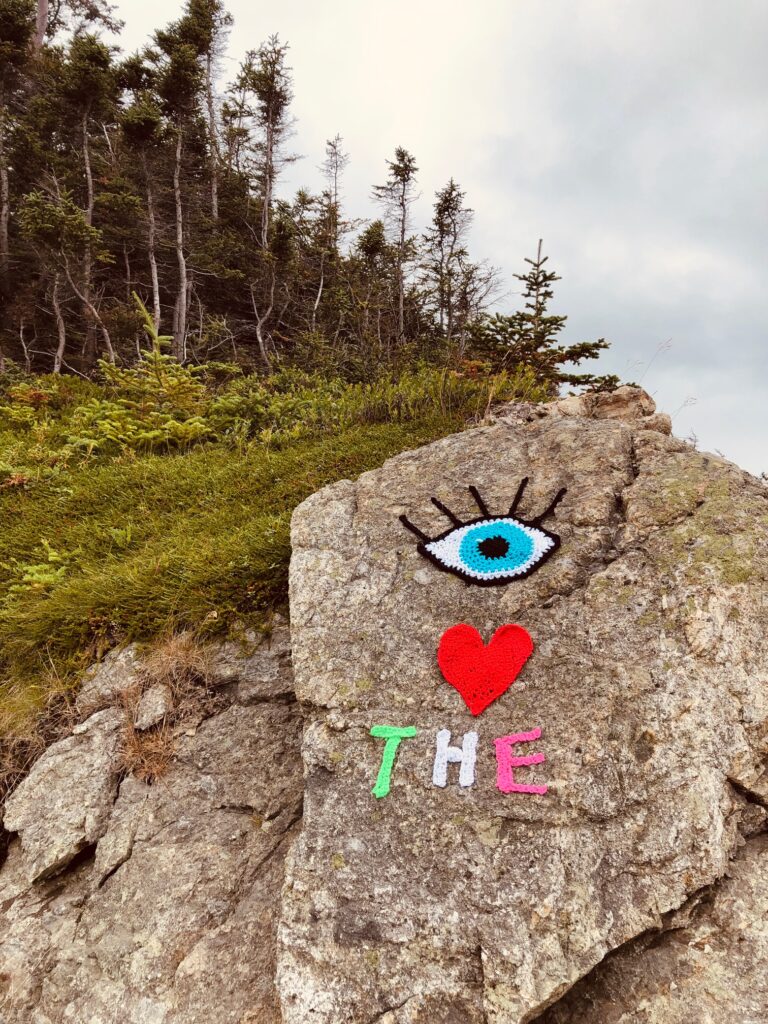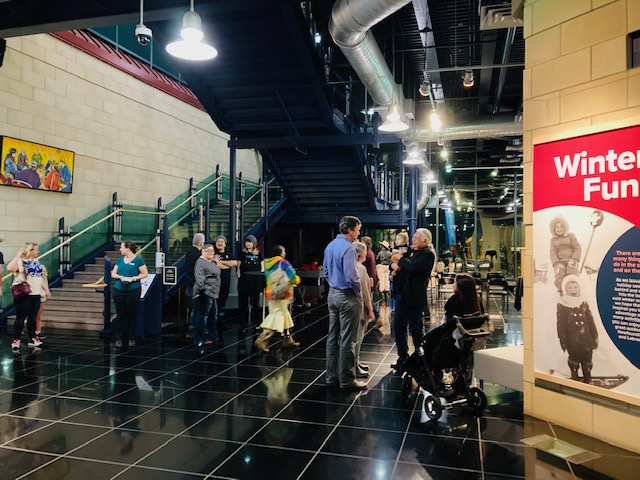Michael Crummey: I’m waiting for an idea that has enough gravitational pull
January 2024
When you were writing The Innocents, did you know that you would write The Adversary as well?
No, I had no idea.
When did you know that you were going to write this book?
Most of the time when I finish a book I have no idea what I’m doing next. And then the idea for a book kind of creeps up on me. So it’s never like I wake up in the morning and think this is a great idea for a book. It’s sort of like, what if … ?, and then I have to wait for things to coalesce around that. I’m waiting for an idea that has enough gravitational pull that other things start coming into the orbit.
When I was doing the research for The Innocents, there was a character that I found in Bruce Whiffen’s book [Bonavista, Flanker Press], about Bonavista, and a lot of the stuff in The Innocents and The Adversary I got from Bruce’s book, but there was a guy named Ryder, who was a merchant out there, and just like a bastard, a total bastard, he was a drunkard and a bully, he shot and killed an Irish servant, suffered no repercussions whatsoever, he imported a group of prostitutes from St John’s and set up a brothel, while he was Justice of the Peace. And everybody there hated him, and wanted to get rid of him, and wrote letters and petitions and stuff. No luck. And I had kind of wanted him to be in The Innocents, until I realized I just had to stay with the brother and sister [Evered and Ada Best]. But I do remember thinking he was kind of the opposite of them, everything that was laudable about the brother and sister in that book.
And I started thinking about Blake’s Songs of Innocence and of Experience. So if I hadn’t named that book The Innocents I don’t know if this idea would have occurred to me. I didn’t want to write a sequel, I wasn’t at all interested in that, but I thought maybe I could take the setup and flip it on its head. And the idea of having a mirror image, to start at the same time as the story in The Innocents and have it run parallel. As a writer that struck me as a really interesting, difficult exercise. But honestly there was no story. Ok I’ve got this bustard, what do I do with him? So for months I sort of decided I was going to write this book and I couldn’t write a word. And then I had one of those, not an aha! moment but a duh! Moment: well if there’s a mirror image then there has to be a sister. And I can’t remember if this is actually true but it feels like the moment I thought that I started writing. The moment that obvious thing came to me, I had a story.
So no I didn’t intend to write it, and the notion of writing a parallel story crept up on me slowly.

What is it about this time period, the late 18th – early 19th century, that interest you so much?
I’m getting that question a lot so I’ve had to think about it. As I keep saying, I never wanted to be an historical novelist or to be seen as an historical novelist, or described as that. But it’s getting harder and harder to be pissed off at that. I’m sure there’s a ton of different things that appeal to me about it. It’s partly … the past is not frozen and the past keeps changing, but it changes more slowly than the modern world, and a lot more things are settled about it than are settled in our current day, that makes it a little easier to work with. But really I think the reason I keep going back to it is I’ve always thought, and I think this comes from growing up listening to mom and dad talk about what their lives were like, just a generation ago, I’ve always thought that one of the things the modern world does for us is it gives us a false sense of how much we have in control. And we’re separated from the really difficult hard truths about how vulnerable we are as human beings. And when you look back a hundred years ago, or two hundred years ago, that vulnerability is impossible to disguise. It’s front and centre and everybody knows it. And I think the prevalence of religious beliefs and superstitions, those were all direct responses to the unavoidable awareness that the world is a difficult place and there are a hundred thousand ways for it to go badly.
I know you don’t like magic realism as a term. But how do you persuade us into this world?
I don’t really know what I’m doing. One of the things I’ve always tried to do, one of the things I’ve always wanted to do, is to have the world that I’m creating in a particular piece of writing feel authentic to a reader. And I know that it’s not, right? And I think that part of the illusion of creative writing is when you’re writing dialogue, you’re not writing how people actually speak. You’re writing dialogue that works in fiction, or creative non-fiction, and those are different things. But at every point you’re trying to create the illusion of a world that a reader will immerse themselves in and at no moment think, oh that’s not true, or that’s fake, or I can’t buy that. So as a writer I think that’s the question I’m always asking myself. And when you’re writing historical fiction there are particular challenges to that. I mean there are certain things that give you a leg up, too, because you know more about that time than most people. Hopefully. And also I think most people are willing to accept your … as long as the people feel real to them, then they’re willing to go along with it, unless there’s something really egregious. But I think it is trying to create the sense of real characters that is, regardless of the time you’re writing about, or how real the world is, even if you’re writing fantasy, the only real test is do people buy these characters as real characters. So for me that’s always the start and the end of things.
One reason I lean towards magic realism, and this may be my own limited vocabulary, but there are scenes in this novel which are quite violent but beautifully written. It’s not gross. Maybe that’s the magic.
One of the things I’m trying to do in writing scenes like that is to use the language as a way of, not providing a buffer, because I do want it to feel real and to give a sense of the horror of it, but there’s also a particular kind of awe that I feel about the awfulness of the world. One of the things that I have become aware of about myself is that I’m fascinated by childbirth. And there are awful scenes of childbirth in a lot of my books. And it’s because it is so horrific. But also potentially beautiful, it’s the source of life. I remember, as a very young man, spending some time in Central America, and having the opportunity to speak with people who had been arrested extra judiciously and tortured. And I remember at the time thinking I don’t know what it is about these stories, but I’ve heard something like this before, it sounds familiar. And eventually I figured out it was hearing women talk about giving birth. The big difference is that at the end of it if things go well there’s joy. I mean I understand women having a child once, but more than once? But it’s because of the purpose of it. But the process is physical torture. Part of what I’m trying to do with the language is give a sense of the awesomeness of it.
Michael Crummey’s writing has appeared on many prestigious shortlist, including the Scotiabank/Giller, and won multiple awards, including the BMO Winterset. His novels and poetry, such as Hard Light, have been adapted to stage and inspired rock songs. His latest novel is The Adversary. The interview above has been lightly edited for clarity. Part 2 will be posted next week.
Image of Blake’s A Cradle Song courtesy British Museum.



